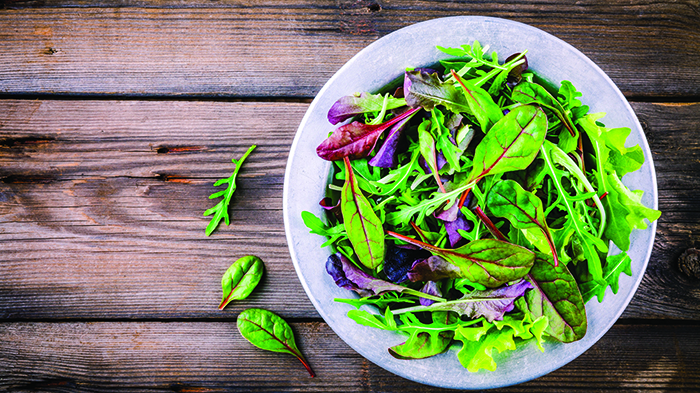When you are undergoing cancer treatment, your diet and nutrition are an important part of keeping you healthy.
Susan Wallace MS, RD, LD, dietitian at St. Elizabeth Cancer Center, says, “Your diet is an important part of your overall health. The problem during cancer treatment is all of the barriers that get in the way of optimal nutrition.”
Common barriers to healthy eating during cancer treatment could include:
- Changes in taste
- Constipation
- Diarrhea
- Dry mouth
- Fatigue
- Loss of appetite
- Mouth sores
- Nausea
- Throat pain (common during head and neck cancer treatment)
The Importance of Diet during Cancer Treatment
“Thinking about eating three big meals a day can be overwhelming when you are struggling with symptoms,” says Susan. “I like to break it down into simple tips to help patients get the nutrients they need.”
Tips for helping you eat well:
- Combatting nausea— if you are nauseous, try eating toast, crackers, or dry cereals which are generally tolerated well. You may need to avoid greasy, fried, or overly sweetened items or foods with strong odors.
- Focus on protein—it is the building block of tissues and the immune system. If you can only tolerate a little food, prioritize protein in your diet.
- Eat colorful fruits and vegetables—by adding a variety of colorful fruits and vegetables (including citrus and dark green leafy vegetables) you give your body needed vitamins and antioxidants.
- Eat five to six small meals or snacks a day—by eating many small meals during the day—you are less overwhelmed by your poor appetite.
- Take advantage of the days you feel good— there are days you won’t feel well and your diet will be limited. When you feel good, try to pack in as many proteins, fruits, vegetables, and whole-grain foods as possible.
- Make food convenient—when you don’t feel like eating, you also don’t want to spend a lot of time in the kitchen preparing meals. Fill your house with yogurt, granola bars, healthy cereals, and things that don’t require cooking.
- Eat room temperature food—hot food can have a lot of odor and affect your nausea. If the smell of food is difficult, try eating cold or room temperature food.
- Try protein shakes—it may be easier for you to drink your meals. Create protein shakes with fruits and vegetables or buy over-the-counter drinks such as Carnation Instant Breakfast, Boost, Ensure, or Orgain.
Overall, try to make sure that you get enough calories and you focus on the quality of those calories. You will need your strength and energy as you undergo treatment.
To learn more about cancer care at St. Elizabeth, please visit stelizabeth.com/cancer.

